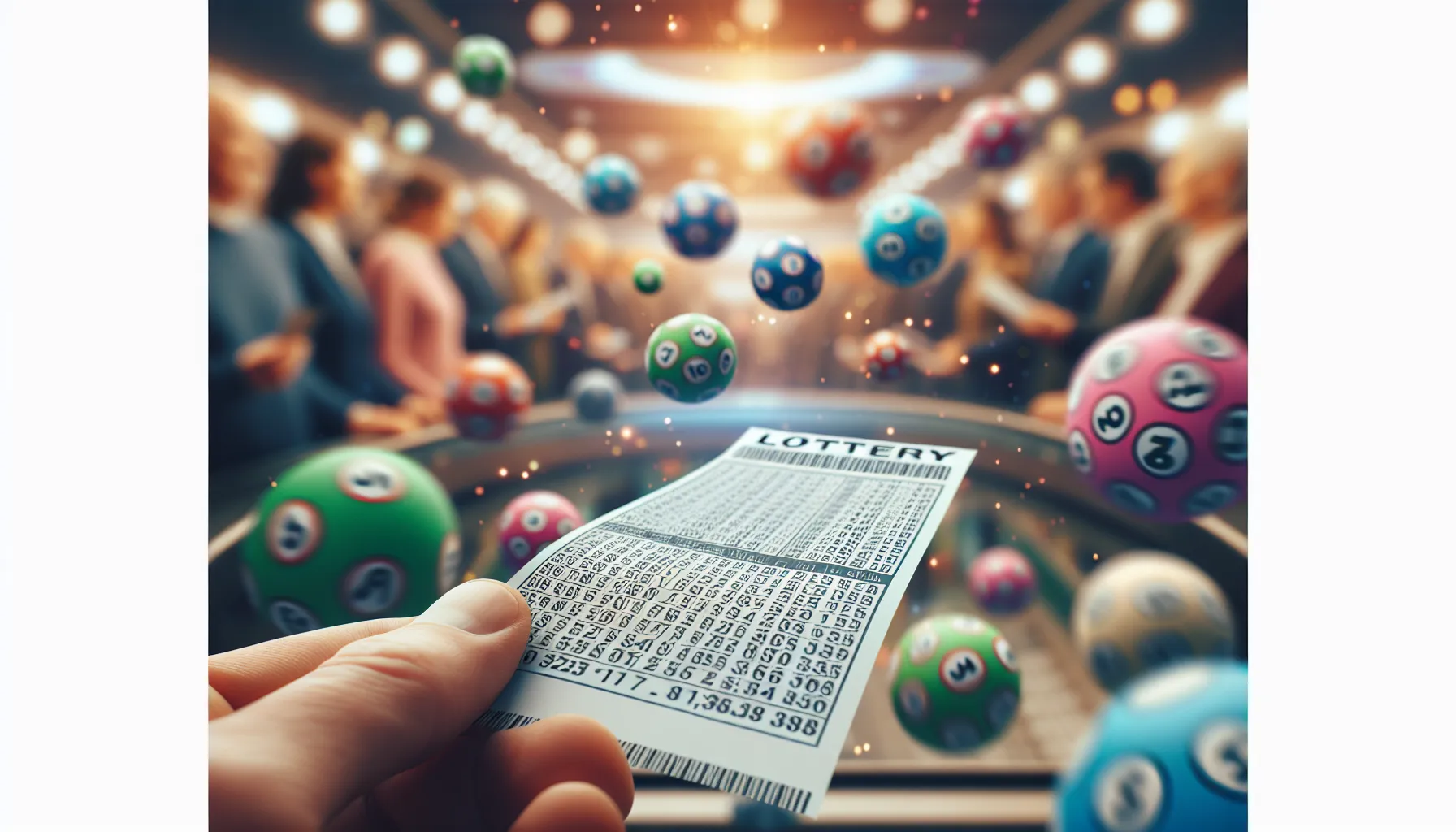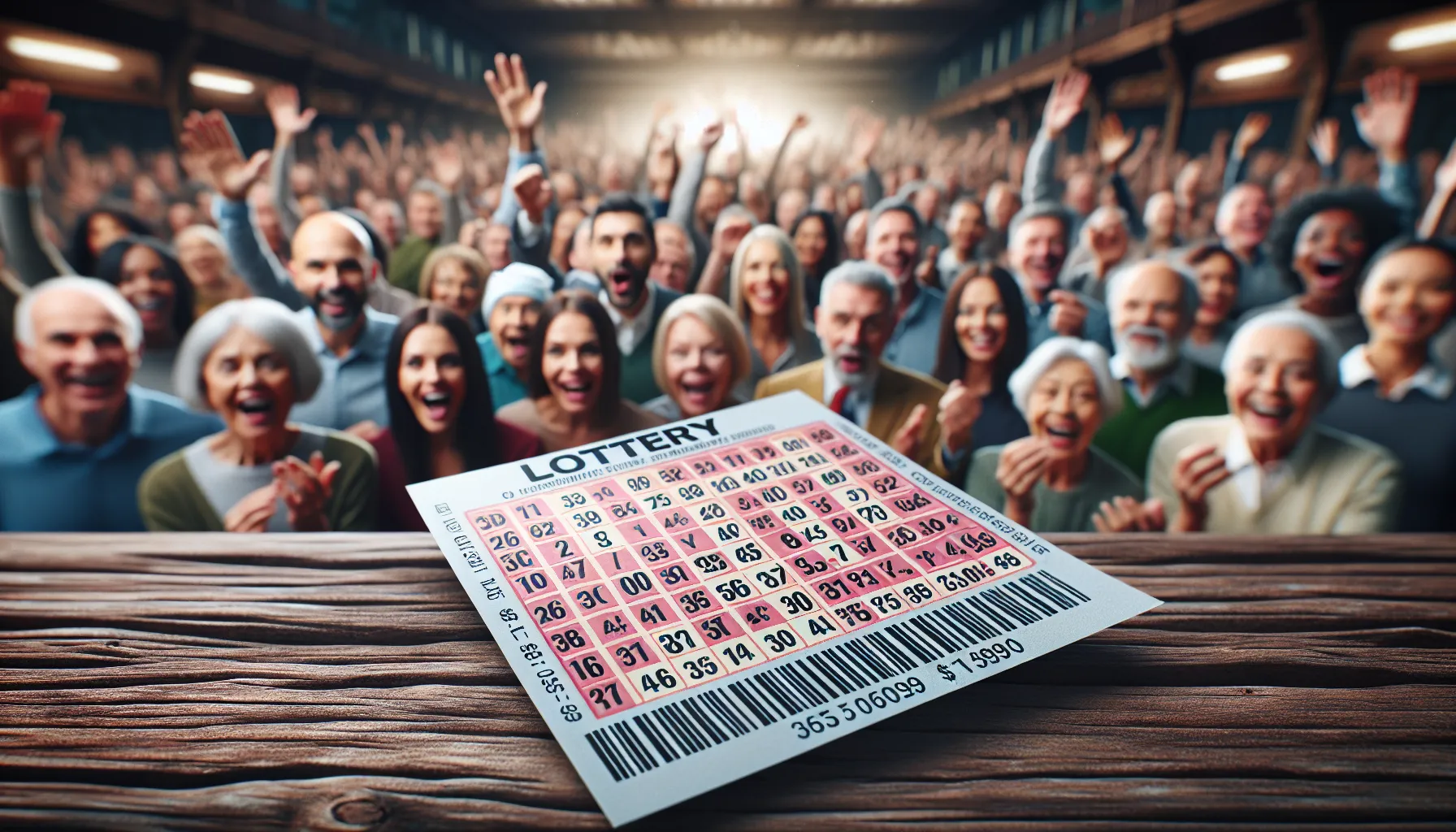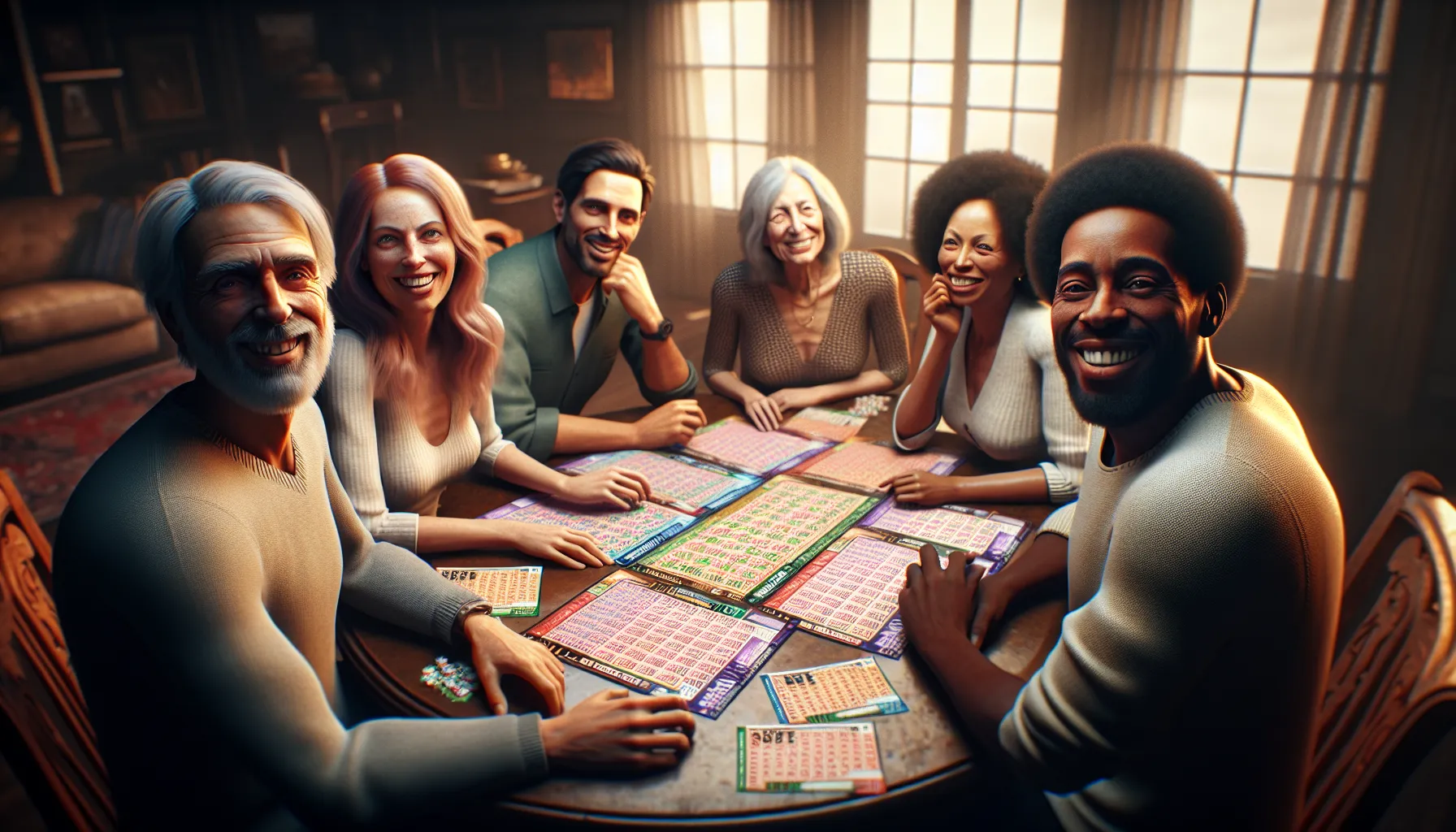Combien de Chance de Gagner au Loto: Understanding Your Odds of Winning the Lottery
Key Takeaways
- Lottery odds depend on the size of the number pool and the number of selections required, making jackpot wins extremely rare, such as 1 in 13,983,816 in a 6/49 game.
- Smaller prizes in lotteries, like matching three numbers, offer better odds, adding excitement without significantly increasing the chances of a jackpot win.
- Strategies like joining lottery pools, diversifying number selections, and playing less popular games can improve your overall chances but cannot guarantee a win.
- Popular myths, such as relying on « lucky » numbers or avoiding « unlucky » ones, have no impact on the odds, as all lottery numbers have equal probabilities.
- Lottery outcomes rely purely on luck, with random draws conducted through rigorous systems to ensure fairness and eliminate predictability.
- Understanding the low probability of winnings helps manage expectations while still enjoying the thrill of participating in the lottery.
I’ve always found the lottery fascinating. The idea of picking a few numbers and potentially winning life-changing amounts of money feels like a dream, doesn’t it? But let’s be honest, we’ve all wondered—what are the actual chances of winning? Is it pure luck, or is there more to it?
When it comes to games like the lotto, the odds can seem almost impossible to beat. Still, millions of people play every week, holding onto the hope that they might just be the lucky one. It’s exciting to imagine, but understanding the probabilities can give us a clearer picture of how likely—or unlikely—it is to hit that jackpot.
Understanding Lotto Odds
Lottery odds describe the probability of matching the correct combination of numbers to win. These odds depend on the number pool and how many numbers players select. For example, in a 6/49 lottery, participants choose six numbers from a set of 49.
The formula to calculate odds considers combinations, not permutations, since the order of the numbers doesn’t matter. In a typical 6/49 setup, the odds of winning the jackpot are 1 in 13,983,816. This figure emerges by dividing the number of favorable outcomes (a single winning combination) by the total possible combinations.
Smaller prizes often have better odds since they don’t require matching every number. For instance, matching three out of the six numbers in a 6/49 lottery has odds closer to 1 in 57. These reward tiers add excitement but maintain the overall difficulty of hitting the jackpot.
Understanding these odds highlights the game’s design, where large payouts remain rare. While luck drives outcomes, knowing the math helps manage expectations and shows why jackpots grow significantly before someone wins.
What Does « Combien De Chance De Gagner Au Loto » Mean?

« Combien de chance de gagner au loto » translates to « how much chance of winning the lottery » in English. This phrase reflects curiosity about the probability of winning a lottery jackpot or smaller prizes.
Translating The Phrase
The French phrase breaks into specific elements: « combien » means « how much » or « how many, » « chance » translates to « chance » or « probability, » and « gagner au loto » means « to win the lottery. » Together, it directly addresses the statistical likelihood of winning in lottery games, making it a common query among players.
Relevance To Lottery Players
This phrase resonates with lottery players wanting to understand their odds before participating. Knowing these chances can help manage expectations, especially with large jackpots where the odds are often extremely low. It also informs the decision-making process when choosing whether to play or how much to spend based on potential outcomes. For instance, in a game like EuroMillions, where odds of winning the top prize are 1 in 139,838,160, understanding these values highlights the rarity of success.
How Lotto Odds Are Calculated

Lottery odds represent the likelihood of matching a specific combination of numbers to claim prizes. These odds depend on the rules of the game, including the number of selections and the size of the number pool.
Factors That Influence Your Chances
- Number Pool Size
Larger number pools, like 1-59 in Mega Millions, reduce the chances of selecting the correct combination. Smaller pools increase the likelihood.
- Numbers To Choose
Games requiring you to select more numbers, such as 6 out of 49 in Lotto 6/49, lower winning odds compared to games requiring fewer choices.
- Multiple Prizes
The inclusion of secondary prizes affects odds for smaller wins. For example, matching two numbers in some lotteries might provide better odds for winning smaller rewards, like 1 in 10 or 1 in 50.
Examples Of Winning Probabilities
| Lottery Game | Jackpot Odds | Secondary Odds | Total Combinations |
|---|---|---|---|
| Lotto 6/49 | 1 in 13,983,816 | 1 in 57 (3 matches) | 13,983,816 combinations |
| Mega Millions | 1 in 302,575,350 | 1 in 37 (any prize) | 302,575,350 combinations |
| EuroMillions | 1 in 139,838,160 | N/A | 139,838,160 combinations |
Matching fewer numbers earns smaller prizes with better odds. For example, hitting three numbers in Lotto 6/49 offers a higher probability than winning the jackpot.
By understanding how these factors work together, I analyze lottery outcomes more realistically and set informed expectations.
Strategies To Improve Your Odds

While the lottery is largely a game of chance, taking strategic steps can help you approach it more thoughtfully. Understanding how to maximize your play and separating myths from reality makes for a better experience.
Maximizing Your Play
Diversifying number selections increases your chances of unique combinations. Instead of relying on popular numbers like birthdays (1-31), I choose numbers from the entire range available in the lottery game. For example, EuroMillions uses a number pool up to 50, so I ensure my picks utilize higher and less common numbers as well.
Joining lottery pools reduces individual costs while boosting collective odds. When I participate in workplace or community pools, the group can afford more tickets and combinations. For instance, 100 people buying tickets together drastically expands coverage compared to individual participants.
Investing in smaller, less popular lottery games often means better odds. Games like local or state lotteries usually feature fewer participants, increasing winning chances compared to major international games like Powerball or Mega Millions.
Common Myths Versus Reality
Repeating winning numbers does not ensure success. Many believe past winning numbers are due to repeat, but each draw is statistically independent. For example, Mega Millions doesn’t favor previous combinations, so any set of numbers has equal odds each time.
Choosing quick-pick numbers isn’t a disadvantage. Quick-pick tickets are randomly generated, just like the lottery’s draw itself. I learned that around 70% of Powerball jackpots have been won using quick-picks, showing there’s no bias against them.
Avoiding « unlucky » numbers has no impact. Each number, whether frequently chosen or not, has identical probabilities of being drawn. For instance, panning superstitions like avoiding 13 or always selecting 7 ensures a logical approach instead of relying on baseless fears or preferences.
The Role Of Luck In Winning
Luck dominates the lottery, as outcomes rely entirely on chance. No skill, strategy, or planning influences the randomly drawn numbers.
The Science Behind Random Draws
Lottery draws use random number generators or mechanical machines to ensure impartiality. Both methods eliminate predictability by producing independent results for every draw. Scientific studies confirm that these systems create fair outcomes without patterns or biases. For example, mechanical ball machines mix balls randomly, while digital generators rely on algorithms to simulate randomness. This ensures that no sequence of numbers has a better chance than another.
Tales Of Unlikely Winners
Stories of improbable lottery wins highlight luck’s essential role. A Canadian couple won two jackpots in 2019, defying odds of 1 in 283 billion. Similarly, a Maryland family hit the Powerball twice in a short span, showing that rare events still occur. These examples illustrate that success isn’t tied to effort but to being in the right place at the right time. While inspiring, such cases reflect exceptional luck rather than typical results.
Conclusion
Playing the lottery is undeniably exciting, fueled by the dream of hitting that life-changing jackpot. While the odds may be daunting, understanding how they work can help manage expectations and make the experience more enjoyable. It’s clear that luck is the ultimate deciding factor, and no strategy can guarantee success.
Whether you’re picking numbers for fun or joining a lottery pool with friends, it’s all about embracing the thrill of possibility. After all, every ticket holds a tiny spark of hope, and sometimes, that’s enough to keep us coming back for more.
Frequently Asked Questions
What are the odds of winning the lottery jackpot?
The odds of winning the lottery jackpot vary based on the specific game. For example, the odds in a 6/49 lottery are 1 in 13,983,816, while EuroMillions has jackpot odds of 1 in 139,838,160. These calculations depend on the number pool and selection process.
Do lottery strategies improve your chances of winning?
While no strategy guarantees a win, you can improve your odds slightly by diversifying your number selections, joining lottery pools, or playing games with smaller number pools. However, the lottery remains predominantly a game of luck.
How are lottery odds calculated?
Lottery odds are calculated based on combinations, not permutations, considering the number of possible ways to select winning numbers from the pool. For instance, in a 6/49 game, combinations ensure the order of numbers doesn’t matter.
Does choosing « lucky » numbers increase chances of winning?
No, choosing « lucky » or avoiding « unlucky » numbers does not affect your chances. Lottery draws are completely random, so all number combinations have the same probability of being selected.
Are quick-pick numbers less likely to win?
No, quick-pick numbers are just as likely to win as manually selected numbers. Since lottery numbers are drawn randomly, the method of selection doesn’t influence the outcome.
What’s the benefit of joining a lottery pool?
Joining a lottery pool allows you to increase your chances of winning by purchasing more tickets collectively while sharing costs. However, any winnings must also be divided among the group.
Why do jackpot prizes grow so large?
Jackpot prizes grow when no one wins the top prize in consecutive draws. The unclaimed prize rolls over, making the jackpot larger until a winning ticket is drawn.
Can smaller lottery games improve your chances?
Yes, smaller lottery games usually have better odds than larger international lotteries since the number pools are smaller, making it easier to hit the winning combination.
How do random number generators ensure fairness in lottery draws?
Random number generators (RNGs) ensure fairness by producing completely independent and unpredictable results. These systems are regularly tested to confirm their randomness and impartiality.
Is it possible to win the lottery more than once?
Yes, while extremely rare, it is possible to win the lottery multiple times, as illustrated by stories of winners who defied astronomical odds through extraordinary luck.
Do large jackpots mean better chances of winning?
No, large jackpots don’t improve your chances of winning. The odds remain fixed regardless of the jackpot size, as they are based solely on the game’s design and rules.
Are smaller prizes easier to win?
Yes, smaller prizes typically come with better odds. For instance, matching three numbers in a 6/49 game has odds of about 1 in 57, compared to the much lower jackpot odds.
Is the lottery purely based on luck?
Yes, the lottery is purely a game of chance. Numbers are drawn randomly, and no skill or strategy can influence the outcome, making luck the only determining factor.
What is the biggest myth about lottery winning strategies?
A common myth is that repeating previous winning numbers increases your chances of success. However, each draw is random, and past results have no influence on future outcomes.